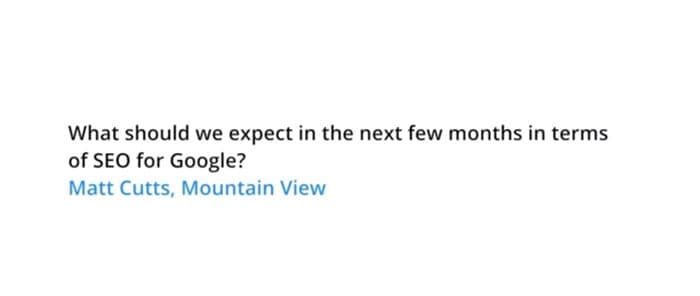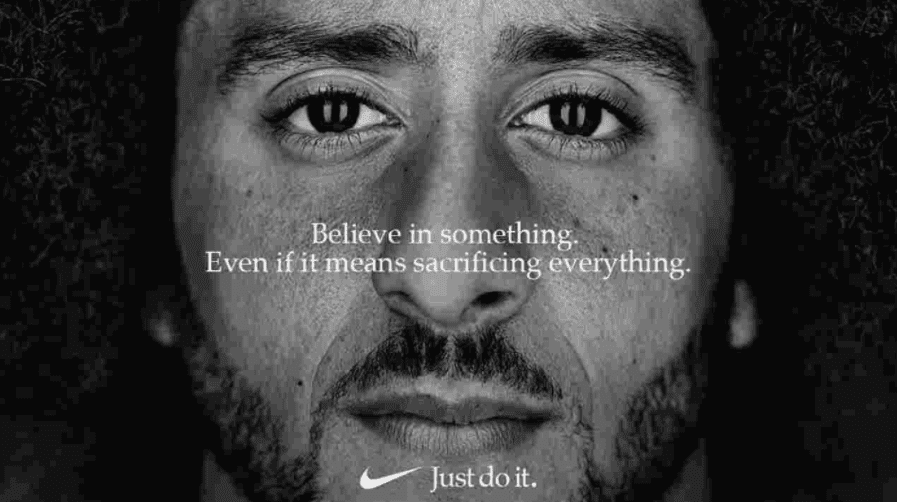Today, Matt Cutts, the head of Web Spam for Google, released a new video to the company’s GoogleWebmasterHelp stream on YouTube. In it, he talks about upcoming plans for algorithm updates and penalties.
Below is our summary of the video contents.
Give it a read and then watch the original Google Penalty video for yourself (embedded at the end of this post for easy access). It’s worth the seven minutes of viewing time.
Talking Points from The Google Penalty Plans video
Matt starts out the video by talking about white hat SEO and content marketing.
This is nothing new. He has iterated the same advice many times.
Still, as more sites are “slapped” and penalized, we will continue to hear this message repeated.
It builds the theme through which all of the algorithm updates and Google penalty efforts are aimed.
Penguin 2.0
Based on Matt’s tone in this part of the video, it is apparent that the next major rev of Penguin is coming…and very soon!
The internal team is referring to it as Penguin 2.0, which suggests that it is far more than a simple data refresh or “tweak” to the existing processing.
It is still focused on battling Blackhat Webspam, but as Matt continues, it is more comprehensive than Penguin 1.0.
This one “will go a bit deeper and have a little more impact” than the first iteration.
He downplays it a bit with his word choice.
But in reality, this has the feel of a rather significant upheaval. It also sounds like we are several weeks or a month away.
If you have been putting off a review and clean up of your link profile, now is a great time to stop procrastinating.
We are here to assist if you need help getting it done.
More Focus on Paid Link Schemes
Paid links are getting even more attention in this round than we saw during early 2012. Matt Cutts specifically called out advertorials as problematic.
He defines advertorial as “native advertising that violate quality guidelines”, i.e. purchased content or ads.
While it is fine to pay for content placement or advertisements, Google’s guidelines dictate that it should not “flow PageRank.”
Matt shared that he has seen sites that take payment and then link, all seeking to pass PageRank to the paying web owner.
This is a straight up in violation of the Link Spam Guidelines.
Really bad way to try to game the system.
If you are taking part in these schemes, you have very little time to stop before you open up your domain to significant, self-induced risk.
Matt went further to add that paid links must also provide “clear and conspicuous disclosure” as paid links. So it’s not enough to nofollow the links.
You also have to disclose that they were bought, rather than earned. No more editorial trickery, folks.
Niche Specific Spam Cleanup
Most of the major changes we see from Google are assessed in aggregate, i.e. to all websites equally (aside from manual penalties, which are domain-specific).
Now, they are looking at more spammy niches and making changes accordingly.
Matt specifically mentioned two niches as getting attention this go around, Pay Day Loans and Porn.
While I have no personal investment in either of those spaces, this is a huge development.
It is the first time Google is aiming to clean up a group of SERPs, rather than all of the SERPs.
Look for more granular control to become a trend moving forward, after they can figure out how to crunch the data appropriately.
New Way to Analyze Links
Matt spoke only briefly about this part, but they are changing the system they use to analyze links.
He talks about “looking at ways to go upstream, to decrease the value [of link schemes] to link spammers.”
What does this mean? They are working on a much more sophisticated link analysis system.
He also shared that this initiative is in the very early days, so we may not see it hit the live SERPs for months, or even a year or two out.
Hacked Sites and Malware: More Help
I was glad to see that Google’s webspam team is working on improvements specifically for hacked sites.
Matt shared that they are focusing more energy on two things:
1. Trying to detect hacked websites better, and more comprehensively
2. Trying to communicate better to webmasters with hacked sites or malware present
This is a huge development.
Google Webmaster Tools (Rebranded to Google Search Console) will tell you a problem exists already, but we are usually on our own to diagnose what the root cause is.
It will only benefit them by helping Webmasters in small companies clean this up faster. Great move.
Matt Cutts Soundbites: Playing by the rules
Matt wrapped up the above sections with a couple of nice quotes.
The first one is the obligatory message that content marketing is the way to shield yourself from these new penalties:
If you are doing high quality content while doing SEO, this should not be a surprise.
On the other hand, he promised that it would be a “more eventful summer” if you are practicing black hat SEO. Need I say more?
Authority Will Grow Wings
Matt indicated that author authority is starting to become more important to ranking.
And that they are looking to even better tie authority to ranking this year.
The tone suggests that this will be driven primarily by topic or niche based focus.
If you are generating content on a specific topic that you can establish expertise in, you are already positioning yourself to benefit from this when it goes live.
It was unclear whether publisher authority will also impact rankings, but I’d wager that it will sooner or later.
Might as well do it all the right way starting now.
More Panda Coming
Matt talked about how they think they’ve uncovered more Panda signals.
Previous iterations of Panda had quite a few holes in it, from falsely penalizing sites to missing cheaters altogether.
These new signals are expected to help clear up the “gray area on the border”, in his own words.
If this means what I think it means, they are buttoning down collateral damage and closing loopholes that remain open within Panda itself.
Cleaning Up the SERPs
The changes just kept coming in this one!
Matt shares that they are improving the way they handle multiple URLs from the same website that appear on the same SERP.
Their plans call for “clusters” of links from a single domain to appear together.
At the same time, other random links for same domain would no longer show up on deeper and deeper SERP pages.
This issue crops up more in some niches than in others.
Still, anything that improves the search experience is up for discussion, and this sounds like a solid move overall.
And in Closing…
Matt said a few things at the end that were awesome to hear.
First, they are aiming to provide more information to webmasters across the board.
He mentioned more concrete details and example URLs for diagnosis of problems, especially in Google Webmaster Tools.
He later added that they are trying hard to provide resources that help SMBs.
We all heard the complaints and saw the finger pointing that went on during 2012, as many people accused Google of bending the rules in favor of large businesses.
Not only is this the right thing to do, but it is a rather savvy PR move if enough viewers believe it.
Take note that he mentions “by the end of the summer” in several spots during this video.
This suggests that all of these changes will be here within 90-120 days, so we won’t be waiting long. Are you ready for them yet?
Updated October 30, 2025
Watch the Google Penalty Plans video with Matt Cutts:
Tommy Landry
Latest posts by Tommy Landry (see all)
- Black Hat AEO Is Here: Google AI Overview Manipulation Is Happening - February 24, 2026
- Where AI Introduces Risk Into Revenue Planning - February 19, 2026
- AI Is Already Influencing Your Forecasting. Do You Know Where? - February 18, 2026





